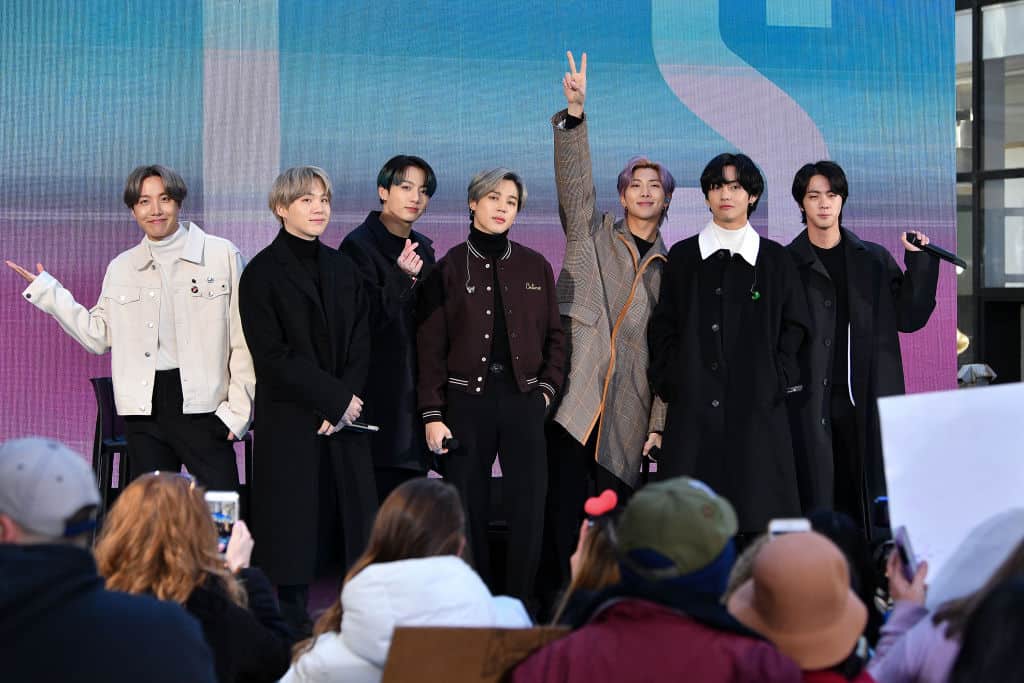Be aware, A.R.M.Y (for those who don’t know, this is how BTS calls their fans)! Hybe, the agency of global K-pop sensation BTS, is joining hands with Dunamu, a blockchain company that operates crypto exchange Upbit, to digitalize BTS goods into non-fungible tokens (NFTs) and more.
Korea-listed Hybe is set to buy a 2.5% stake in Dunamu for 500 billion won (US$422 million), while Dunamu will purchase Hybe’s newly issued shares worth 700 billion won (US$590 million), according to a regulatory filing.
In an online video briefing released today, Hybe Founder Si-hyuk Bang said the two plan to develop an NFT business under a new joint venture, which will “allow the artist [intellectual property-based] content and products that Hybe has showcased to date to become digital assets for fans.”
The idea of tradable collectibles has long prevailed among K-pop fans already — particularly with photo cards of the artists. Bang said these photo cards are a kind of behind-the-scenes images that capture various charms and moments of the artists. Given the limited amount of these cards, they are sometimes exchanged or traded among fans.
“We’re working with Dunamu to create a way to expand the fan experience more diversely and securely, such as digitally authenticating the uniqueness of these photo cards and making them permanent, but also allowing them to be collected, exchanged and displayed in a global fan community platform like Weverse,” Bang said.
Launched in 2019 by Hybe, Weverse is an app for content — sometimes exclusive to official fan club members — and communication between artists and fans.
“We can have fans come together and exchange cards with each other in a virtual space like an online community such as Weverse,” Chi-Hyung Song, chairman of Dunamu, said in the briefing.
Notably, Hybe reported record-high quarterly operating profit and revenue for the third quarter, according to its latest quarterly report released today. In the third quarter, its operating profit expanded 63.3% year-on-year to 65.6 billion won (US$55.7 million), while its revenue increased by 79.5% year-on-year. Its net profit also surged up 81.9%. The company attributed the performance to the growth of sales of albums, merchandise and its licensing business.
Read more: NFTs and the music industry: K-pop’s new token economy
Hybe’s move to join the global race into NFT doesn’t really come as a surprise.
Back in July, JYP — a top K-pop entertainment agency that manages popular idol acts including TWICE and 2PM — partnered with Dunamu to build an NFT platform using JYP’s content.
SM Entertainment, another major K-pop agency that manages groups EXO and SHINee, said last month that its unit Dear U is looking to launch a metaverse platform with funds from an initial public offering, the Korea Herald reported. In June, SM also partnered with KAIST, a prestigious Korean university known for technological innovation, to study digital avatars for virtual concerts in the hope of developing their metaverse technology, according to a Yonhap News Agency report.
The large K-pop companies have been competing to invest in new forms of technological advancement. “One of the things that K-pop production companies are very heavily invested in is a narrative of innovation,” Thomas Baudinette, a lecturer at Macquarie University in Sydney whose research interests include how K-pop innovates, told Forkast.News in an interview in August.
“K-pop positions itself as being cutting edge. And we see a competition between the major producers … to demonstrate that they are at the cutting edge,” Baudinette said.
K-pop, broadly defined as Korean mainstream pop music, has “emerged from a subculture into this global mainstream phenomena,” Areum Jeong, an assistant professor who teaches Korean pop culture at Sichuan University-Pittsburgh Institute, previously told Forkast.News.
Despite an overall downward trend in the global music market in terms of album sales, the K-pop industry hasn’t seemed to have struggled, and sees selling albums as one of its main revenue drivers. During the first 11 months of 2020, the sales value of South Korean albums and music DVDs amounted to US$171 million, almost double the US$93.25 million recorded for full-year 2019, according to data from the Korea Customs Service.





